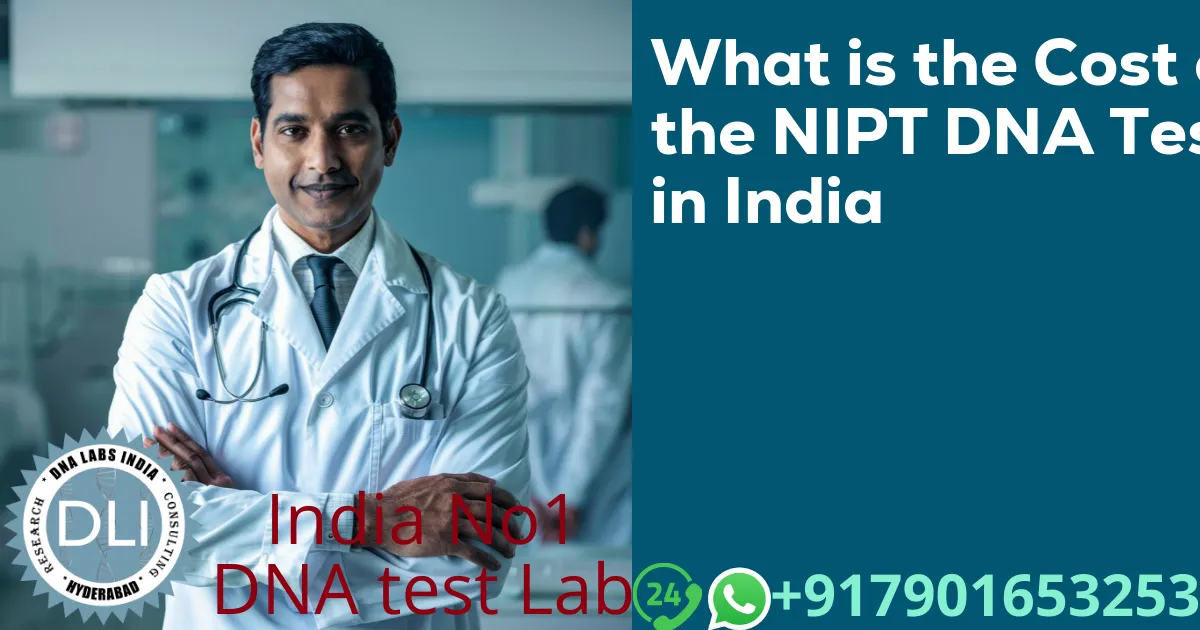What is NIPT?
Noninvasive prenatal testing (NIPT), sometimes called a noninvasive prenatal screening test (NIPS), is a method of determining the risk that the fetus will be born with specific genetic abnormalities. It has been a little over two years since noninvasive prenatal testing (NIPT) was introduced as part of prenatal care to screen high-risk patients for fetal aneuploidy.
While Noninvasive prenatal testing (NIPT) is both highly sensitive and highly specific across numerous studies, the only diagnostic tests offered prenatally for DS, or other aneuploidies are amniocentesis and chorionic villus (CVS) sampling.
What is the NIPT test in pregnancy?
NIPT Test screens for trisomy 21 (Down Syndrome), 18 (Edward Syndrome), and 13 (Patau Syndrome) as early as 10 weeks of Pregnancy. This test is also known as NIFTY Test or Non-Invasive Prenatal Test Maternal Blood for Fetal DNA Test or NIPS Test.
What does the NIPT screen for?
NIPT (Non-invasive prenatal testing) screens for Down syndrome (trisomy 21), Edwards syndrome (trisomy 18), and Patau syndrome (trisomy 13) . They cause moderate to profound intellectual disability and are associated with major congenital malformations.
Sex chromosome abnormalities, such as Turner syndrome (45, X) and Klinefelter syndrome (47, XXY) , can also be detected, but with reduced accuracy.
Down syndrome or trisomy 21 is the most common cause of prenatal chromosome abnormalities with approximately 50% of all reported chromosome conditions.
When is the best time to do the NIPT test?
For the most accurate test results possible, the fetal fraction must be over 4 per cent. This usually happens after the 10th week of pregnancy
Who needs to get tested?
All pregnant women who need insight into their baby’s development can avail of the test, regardless of their age. Medical societies today support the use of NIPT as the first line of screening test for all pregnancies, irrespective of the risk. For physicians, it is crucial to recommend this test for pregnancies where:
- The woman is above 30 years of age.
- A high risk for abnormality is found in serum screening.
- Specific abnormalities on ultrasound are identified.
How Does NIPT Work?
NIPT (Noninvasive Prenatal Testing) analyzes cell-free DNA from a maternal blood sample (a mixture of fetal and maternal DNA) to screen for common chromosomal conditions including trisomy 21 (Down syndrome), trisomy 18 (Edwards syndrome), and trisomy 13 (Patau syndrome).
Initial screening with noninvasive prenatal testing can help to avoid this potentially unnecessary and invasive testing. There is no risk to the mother or baby, and NIPT provides the earliest testing available.
Small amounts of a baby’s DNA pass into the bloodstream of the mother during pregnancy. New technology allows us to analyze this DNA directly from the mother’s blood and screen for chromosomal abnormalities.
What is different about NIPT?
In recent decades, screening for chromosome abnormalities during pregnancy has been called first-trimester screening (FTS). FTS and Noninvasive Prenatal Testing (NIPT) are very different types of tests, both in what they test and the accuracy of their results.
NIPT (Noninvasive Prenatal Testing) is a genetic test that analyses your baby’s DNA fragments that are circulating in your bloodstream to detect the most common chromosomal abnormalities.
By directly analyzing your baby’s DNA, Noninvasive Prenatal Testing results are more accurate. They have fewer false positives (i.e., abnormal results that are incorrect) and fewer false negatives (i.e., normal results that are incorrect) than FTS in identifying Down syndrome cases.
What is the cost of the NIPT DNA Test?
The Cost of the NIPT DNA Test is Rs.10000.
How much time does it take for the outcome of the results?
It takes 8-10 working days for the outcome of the results. The results will be sent to your email.
How to book an appointment for the NIPT NGS Test?
You can either book the test online or can call us to book your test, and a free home sample collection will be provided to all our clients.
What to ask your doctor about NIPT?
Noninvasive prenatal testing (NIPT) is based on cell-free DNA analysis from maternal blood and is a screening test; it is not diagnostic. Test results must not be used as the sole basis for diagnosis. Further confirmatory testing is necessary before making any irreversible pregnancy decision.
How Accurate is the NIPT?
NIPT is more accurate than traditional first-trimester screening and much less likely to give a false-positive or false-negative result. That means there will be much less chance your doctor would recommend follow-up testing such as amniocentesis. It is accurate up to 99.99%
NIPT has a very high sensitivity (correct positive rate) and specificity (correct negative rate) for Down syndrome. For other conditions such as Edwards and Patau syndrome, the sensitivity is slightly lower but still substantial.
Can NIPT detect a miscarriage?
No. If the event of fetal demise, fetal DNA can continue to be detected in the maternal circulation for weeks or even months while the placenta remains in situ. NIPT cannot determine whether the fetal DNA has come from a viable or non-viable fetus.
What does the result mean?
A positive result means that it is likely that your baby will have one of the tested conditions, for example, Down syndrome or another. If the outcome of your noninvasive prenatal test is positive, you should consult with your doctor and plan another diagnostic test to confirm this result or exclude a diagnosis related to that result. A negative result means that it is unlikely your baby will have Down syndrome or another chromosomal defect analyzed by this noninvasive prenatal test.



